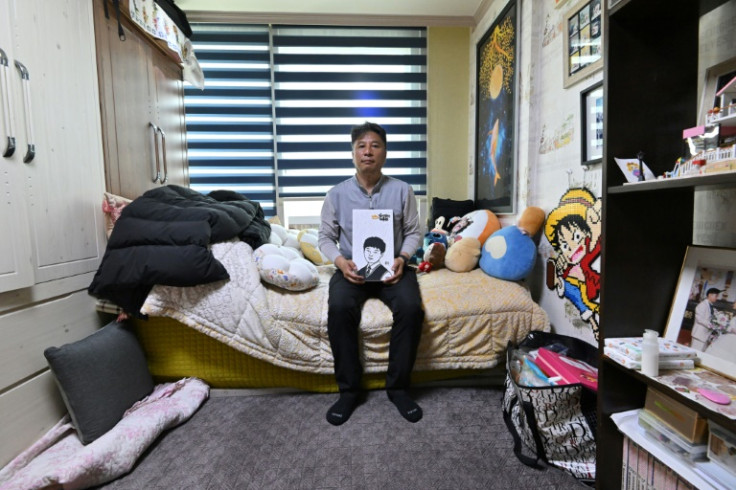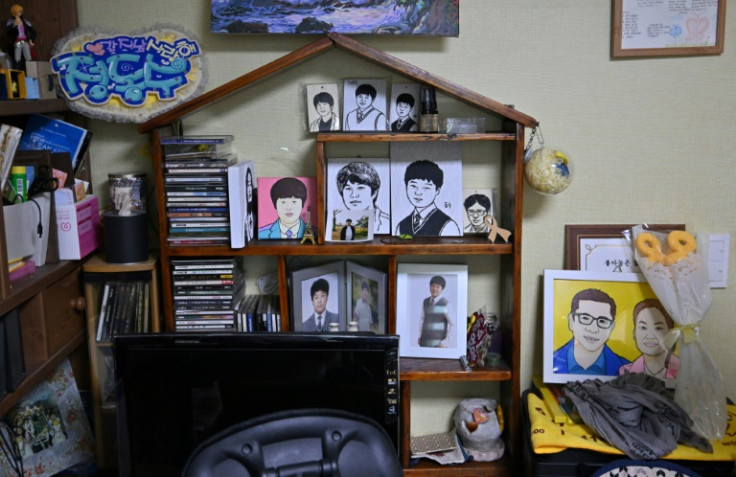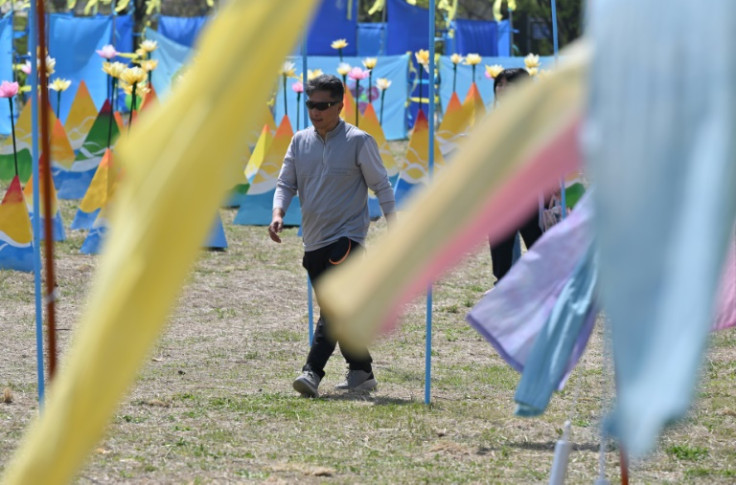
The ferry sank live on television as the children on board sent desperate text messages to their parents -- 10 years after South Korea's worst-ever maritime disaster, families are still reckoning with the horror.
Jung Sung-wook's teenage son was one of 304 people who died when the overloaded Sewol ferry capsized off South Korea's southern coast on April 16, 2014.
Almost all the victims were schoolchildren who obeyed orders to stay in their cabins, while the crew escaped.
One of the last text messages Jung's son Jung Dong-soo sent was to his mother, telling her that the ferry had tilted to 45 degrees -- prompting his father to race to the scene of the rescue operation in a desperate bid to find his child.
When the senior Jung arrived at the school gymnasium in southern Jindo where survivors were being taken, he got his first glimpse of the chaotic rescue operation.
"It was literally hell -- I mean, chaos. No one responded properly, the children were left alone, and the parents came down and took the children home. It was so chaotic, in a word, it was hell," he told AFP.
He says he has "a lot of regrets" about how the rescue effort played out, thinking that if things had been done differently, more people could have been saved.
After it became clear his son had died, Jung became involved in the search for missing bodies, and after that, in the campaign to salvage the vessel, helping to lobby the government to have the Sewol raised from the seabed and taken to shore.
Even in that process, "there were a lot of errors," he said.
As the 6,825-tonne Sewol began taking on water the passengers were told by the crew to stay put -- but the captain and his colleagues were first to leave the vessel. They were later jailed for their actions.
The disaster was blamed on a deadly combination of cargo overloading, an illegal redesign and poor helmsmanship by what the court called an "incompetent" crew.
The rescue was also botched, many experts have said, but former coast guard chief Kim Suk-kyoon who was tried on charges of mishandling the rescue mission -- and acquitted in November -- recently said there was nothing else they could have done.
"People claim that casualties could have been prevented or their scale reduced had the coast guard issued an evacuation order. They make such claims without understanding the situation," Kim, who now teaches maritime policing at a local college, said in an interview Saturday with the daily Hankook Ilbo.
"The Sewol was already tilting at 50-60 degrees when rescuers arrived," he said. "It was difficult for passengers to escape safely without instructions from the captain or crew."
Intense public fury targeted then-president Park Geun-hye after it emerged she was uncontactable for several hours as the disaster unfolded. She was later impeached, in part due to her handling of the sinking.
Despite prison sentences, court-ordered compensation, and a change of government, father Jung says he feels not enough has been done to account for the tragedy and make sure it doesn't happen again.
"Now, 10 years later, I feel even more sorry about the fact that even though I tried so hard, there was no proper punishment and no investigation into the truth," he told AFP.
"Looking at the current administration now, we believe things have got worse... in relation to the disasters, (President) Yoon Suk Yeol's government just keeps trying to hide them and has no plan."
South Korea's rapid transformation from a war-torn country to Asia's fourth-largest economy and a global cultural powerhouse is a source of national pride.
But a series of preventable disasters -- from the Sewol ferry to the 2022 Itaewon Halloween crowd crush, which killed more than 150 mostly young people -- has shaken public confidence in authorities.
District-level officials and some police officers have been prosecuted over the Itaewon disaster, but no high-ranking members of the government have resigned or faced prosecution, despite criticism from victims' families over a lack of accountability.
"The victims have the right to be accurately informed by the state of why such a disaster occurred and how things are progressing. This is something that our country is lacking so far," Jung said.









